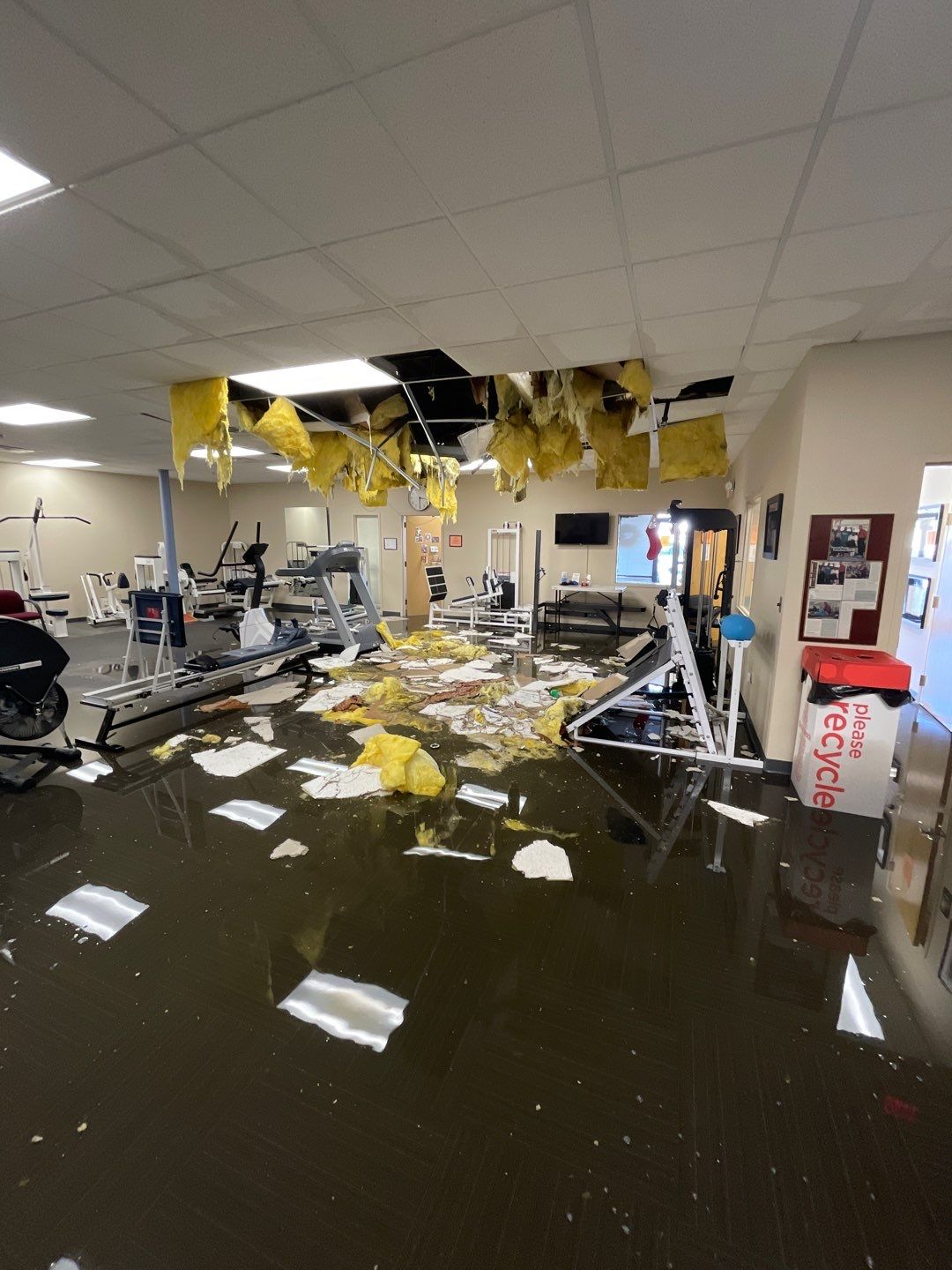wind, rain, flooding
RR Restoration has a team of professionals and a host of resources to handle the most challenging projects for wind and rain damage, including water damage from broken pipes, or hail damaged roofs that leak.

Water damage always has hidden issues, such as mold…
After a devastating tornado or hurricane hits an area, the immediate focus is often on the physical destruction caused by strong winds and flooding. However, the aftermath of a hurricane or tornado can also pose significant risks to air quality and lead to the growth of mold, which requires careful mitigation to protect public health.
Water damage resulting from hurricanes or tornadoes, or even a burst pipe inside a building, or hail damaged roofs, can create ideal conditions for mold growth. As floodwaters recede, they can leave behind damp building materials, saturated carpets, and hidden pockets of moisture that promote mold growth. In the case of roof damage from hail, water can seep in undetected at first and create extensive issues within the attic of the building. Additionally, prolonged power outages and high humidity levels in the post-storm environments can further exacerbate mold growth, as well as contribute to the release of airborne particles and contaminants into the air.
Mold can have serious health consequences, ranging from respiratory issues to skin irritation and allergic reactions. It can also make pre-existing health conditions worse, such as asthma and allergies. Therefore, it is crucial to implement effective mold mitigation strategies to safeguard your health in the aftermath of a hurricane.
Proactive measures should be taken to remove standing water and dry out affected buildings as soon as it is safe to do so. This may involve using commercial-grade dehumidifiers, fans, and other drying equipment to eliminate excess moisture. Affected materials, such as carpets, drywall, and insulation, may need to be removed and replaced to prevent mold growth.
Furthermore, proper ventilation and air filtration should be established to control airborne mold spores and other contaminants. High-efficiency particulate air (HEPA) filters can be used in air purifiers to capture small mold spores and prevent them from circulating in the air. Regular cleaning and disinfection of affected areas with mold-killing products should also be performed.
RR Restoration of Atlanta has extensive knowledge and experience when it comes to mitigation of water damage. Restoration of businesses and properties is second nature to our team. We are here to help.
